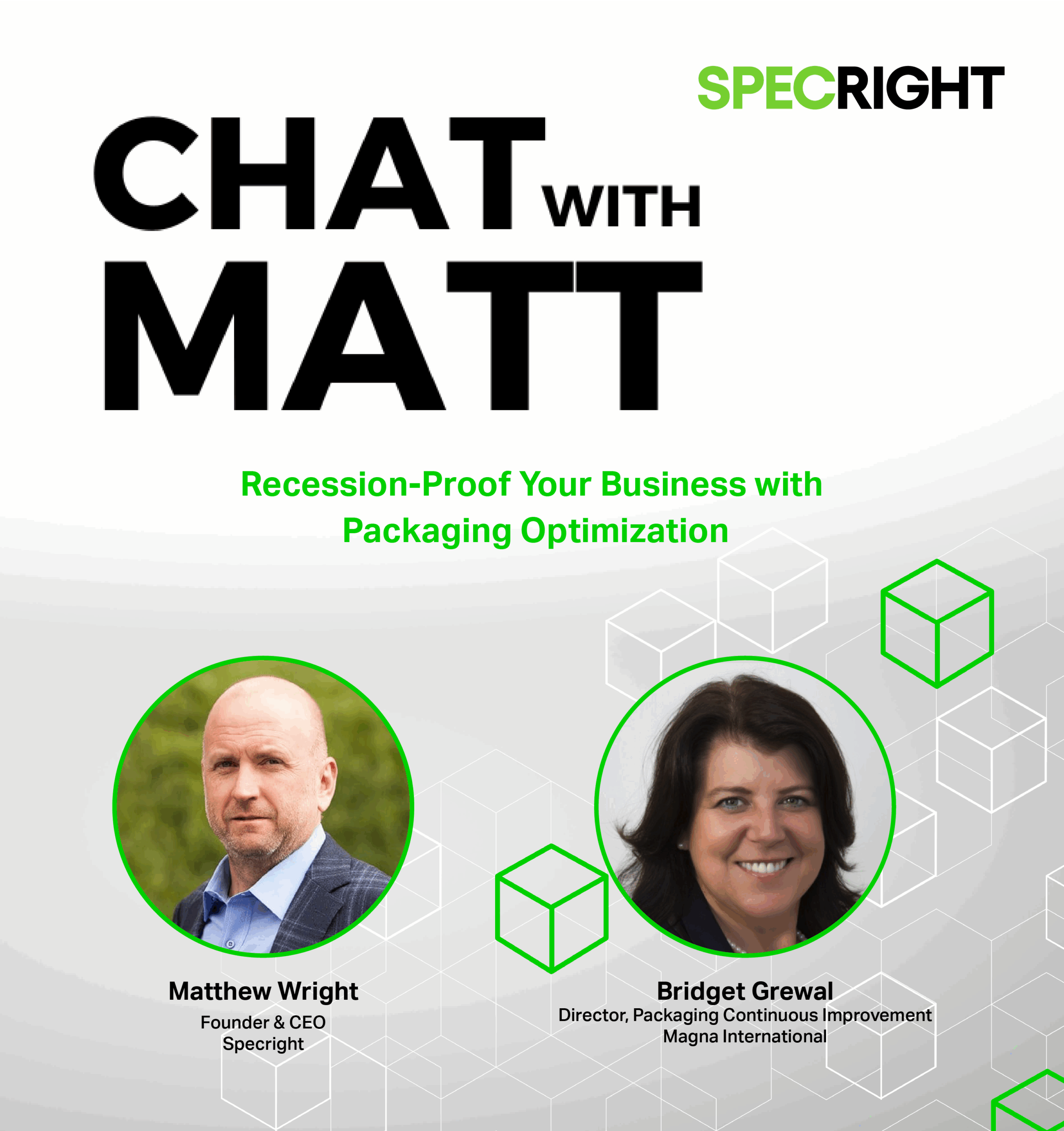Rising inflation, global unrest, workforce changes and many more economic challenges are impacting the way companies operate. It’s left many executives looking for ways to optimize packaging costs, without slowing down innovation or regressing on sustainability goals. But, where do you even start?
.png)
I recently chatted with Bridget Grewal, Packaging Director of Continuous Improvement at Magna to find out.
With all these challenges, it’s easy to lose sight of the opportunity within reach. These three catalysts have proven to keep momentum going, even in challenging times.
1. Digitize before you optimize
“We found out … that the service providers know everything about the technology and the packaging engineers know very little,” Bridget Grewal, Packaging Director of Continuous Improvement at Magna explained.
There are a lot of moving parts when it comes to packaging, and while many service providers are experts on technology, it’s critical that packaging engineers have a way of communicating needs that is native to their experience. Standards help us achieve that goal.
The first step to digitization must start before touching any technology. The team must establish a common language. Standards should be as simple as possible so that everybody can read them even if they aren’t an expert in the technology being utilized. Once the taxonomy is defined, digitization and mapping data to that standard can begin.
While preparing for digitization, it’s important to also resist the temptation to digitize overly complex steps that were necessary before a standard was established. The goal of digitization is not simply to replicate manual processes in a digital format, but to simplify and improve processes through the use of digitization. It’s the perfect catalyst for re-examining how things get done.
2. Drive cost savings with data consolidation
Once a common language is established; the next challenge is setting a single source of truth.
An organization can fairly easily connect many different data technologies together, but unless context is established up front – data duplication, misalignment and poor decisions will follow.
We’ve worked with leading companies, like P&G, J&J, and Grimmway Farms to help them overcome this challenge. Creating a common language that is used for data consolidation is key to saving money and making life easier on everyone, including suppliers because tying specification data to purchase orders and pricing information can reveal opportunities to change out materials and save costs or identified packaging materials that should be prioritized for bid.
3. Collaborate, Collaborate, Collaborate
While cost control is critical in a downturn – the businesses that survive and thrive innovate their way out of challenges rather than stagnate with simple cost cutting measures.
We’ve entered a glorious stage where technology is built to work with other systems. Open APIs allow us the freedom to operate flexibly. As collaborative approaches are adopted at higher rates, we are prime to earn the benefits.
In my chat with Bridget Grewal, she explained the challenge and the opportunity. She shared that packaging engineers thought they were designing recyclable containers in the automotive industry, but that they had a non-recyclable effect in their actual usage. If they were fastened the wrong way, or screws or staples required too much manual labor to remove, containers weren’t being repurposed as hoped. Some recycling centers even reported that if things were secured the wrong way, the whole container would end up in a landfill.
Good intentions matter, but the only way to maximize results is with deep collaboration. With this new information in hand Bridget’s team can encourage adjustments that will lead to sustainable long-term results.
Want to dig deeper?
Watch the replay of our “Chat with Matt” session here.

You can also plan to join me for the next “Chat with Matt” session – in person – at Specification Management Summit 2023. We’ll be hosting it in Nashville, TN, January 16-18 and registration is now open.
Explore More Blogs
Get Started
With Specright’s Solution Suite, you can digitize, centralize, and link your specification data to drive efficiencies, intelligence, traceability, and collaboration within your organization and across your supply chain network.




